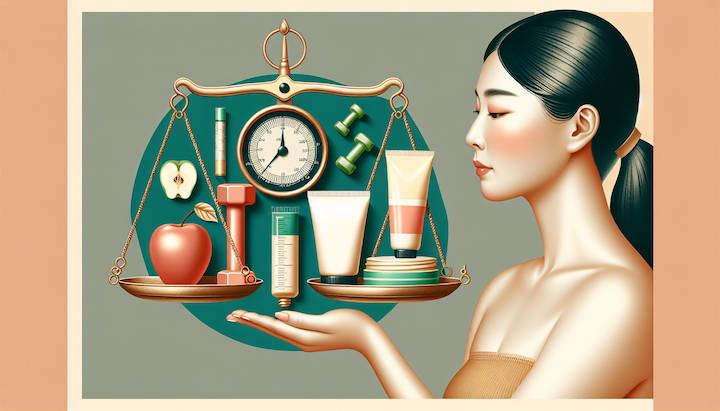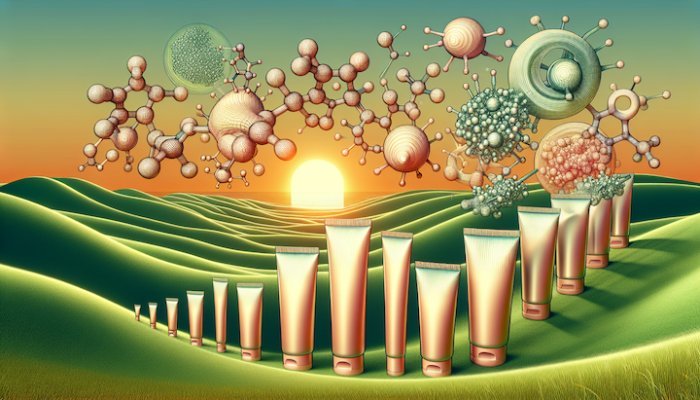Definition of stress
Dr Hans Selye wrote the first clinical definition of stress in his definitive study on stress and its control. He identified three progressive stages in the body's reaction to it...
Stage 1- Alarm reaction
Restlessness, nervousness, jitters and other non-specific and non-directed signs of agitation, all caused by too much adrenaline in the system.
Stage 2 - Resistance
The body uses its minor resources to deal with the stress. If they are sufficient, it recovers.
Stage 3 - Exhaustion
If the stress is greater than the adaptive resources then exhaustion occurs. Additional stress may kill. Organ changes in this stage are enlarged stress control glands (the adrenals) and atrophied immune system glands (the lymph and thymus). The diseases / symptoms which occur resemble those of essential fatty acid deficiency and also modern degenerative diseases, they are...
high blood pressure; water retention; arthritis; heart enlargement; strokes; ulcers; kidney disease; eclampsia and toxemia of pregnancy; allergies; diabetes; neurological problems; cancer.
To go from a simple definition of stress to the complex problem of its control is a huge step.
The word stress is all too often used. And yet stress, whether its mental, emotional or physical, causes the body to react in the same way. A cascade of inflammatory cytokines are released, plus the three stress hormones cortisol, adrenaline and noradrenaline.
All three are made in the adrenal glands. Adrenaline and noradrenaline in the adrenal medulla, and cortisol in the adrenal cortex. Unless Addison's and Cushing's disease are present, the adrenals are ignored.
These three hormones cause the body to slow down, apart from the heart and major muscles, until all danger has been dealt with. The fight/flight response was invaluable in times past when being chased or attacked by wild animals.
But now the 'dangers' come in a different guise, and from many directions. From environmental poisons, toxic skin care, processed food or drink, polluted air and water, malnutrition, drugs, crowded living conditions, redundancies, divorce and more.
The three stress hormones cause...
- Neurotransmitter levels to drop
- Hormone levels to drop
- The immune system to be suppressed
- Digestion to slow down
FIGHT leads to...
- Aggression
- Irritability
- Rage
- Violence
FLIGHT leads to...
- Avoidance
- Mental confusion
- Withdrawal
- Fatigue
And now there's another F which is occurring increasingly...
FRIGHT which leads to...
- Anxiety
- Apprehension
- Depression
- Panic
The stress hormones also cause...
- The heart to race, so blood pressure goes up
- The rennin-angiotensin-aldosterone system is activated to raise blood volume blood pressure goes up
- Angiostensin causes blood vessels to constrict, so blood pressure goes up
- Aldosterone production causes sodium to be drawn into the tissues, which causes water to be retained so blood pressure goes up
- Glycogen (stored glucose) is released by the liver to supply extra energy to cope with the emergency. But excess glycogen increases blood fats
- Blood is directed away from peripheral blood vessels and directed to the heart and major muscles, this causes the temperature of the skin to drop leading to feeling cold
Its no wonder so many people are on angiotensin inhibitors to relax blood vessels, statins to lower cholesterol, beta blockers to calm a racing heart, diuretics to reduce water retention, and antidepressants to prevent panic.
With the heart racing and blood pressure up, more blood is pumped through the capillaries, which then supplies vital oxygen and glucose to run or fight.
But with chronic stress there is no danger to respond to, so if the glucose is not used up either by fighting or running, the body responds by creating a surge of insulin from the pancreas to prevent hyperglycaemia. As there is very rarely an 'emergency', this invariably happens.
Unfortunately, with a trigger happy pancreas because of all the emergencies and too much sugar, sugary foods, coffee or caffeinated drinks, it releases more insulin than is required. Blood glucose drops sharply which causes shakiness, hunger, foggy thinking, a concurrent drop in temperature and sweating, anxiety and panic.
But at the same time the brain registers its not getting any fuel so sends an alarm signal to the adrenals to make adrenaline. This hormone stimulates the liver to convert glycogen into glucose to prevent the drop in blood glucose, but adrenaline causes anxiety, panic attacks, jitteriness, blood vessels to constrict so blood pressure goes up, a vicious cycle.
This vicious cycle leads to very stressed adrenals, the most overworked and overlooked of all glands.
A rise in insulin stimulates the liver to continue converting the glucose into glycogen, but when its storage capacity is full (about half a kilo), it releases the glycogen into the blood stream. Glycogen is then absorbed by fat cells, to store until times of famine occur. This leads to an increase in cholesterol and triglycerides, and in many cases weight gain.
This function is a leftover from the past and was in fact life saving. In times of famine people could live off the fat, now there's no longer famine in industrialised countries, but the same function remains and people now live with the fat.
Over time excess insulin causes the cells to become insensitive to it, which leads to insulin resistance.
With the glucose being absorbed by the liver and fat cells, the cells themselves unresponsive to insulin because of insulin resistance and therefore getting little 'fuel', the result is...
- Tiredness
- Fatigue
- Exhaustion
Insulin resistance can lead to...
Metabolic syndrome, type 2 diabetes, heart disease, stroke, poly cystic ovaries and obesity. It is also associated with anovulation, erratic periods, high androgens and reproductive problems in women. Plus skin problems such as acne, increased inflammatory cytokine levels, increased clotting, high LDL, low HDL cholesterol, high triglycerides, weight gain, muscle weakness, brain fog, an inability to concentrate, high blood pressure and...
- Tiredness
- Fatigue
- Exhaustion
But insulin resistance prevents the formation of glycogen in the liver, which means no storage of glucose to use in an emergency.
It also causes the brain, liver, adrenals, thyroid, gut etc, to malfunction or slow down due to lack of glucose. So drugs are given.
If the pancreas becomes exhausted, it slows its production of insulin. Or it cant keep up with the amount of fructose, sugar or glucose that is eaten. In either case blood glucose levels increase, which cause increased glycation of proteins, which causes changes in protein function in the body, all related to elevated blood glucose levels.
Proteins are needed for healing and growth, but if glycation occurs they are unable to perform their task.
Glycoproteins are essential to health, but the process requires an enzyme to attach the glucose molecule to the protein, the process is known as glycosylation. It is a controlled reaction.
Glycation on the other hand is a non-enzymatic, uncontrolled, haphazard reaction damaging to health.
Glycated proteins result in advanced glycated endproducts, normally referred to as AGE, and that is exactly what they do, they cause ageing.
Advanced glycated endproducts are reactive oxygen species, or ROS for short. Oxidative stress leads to internal damage, inflammation, Alzheimer's Disease, cardiovascular disease, stroke, chronic inflammatory diseases such as atherosclerosis, asthma, rheumatoid arthritis, osteoarthritis, connective tissue diseases like lupus, heart attack, nephropathy, retinopathy, neuropathy, fibromyalgia, polymyalgia and more.
Avoid all sugars. Not only do they cause damage, and therefore stress to an already over stressed system, but fructose, sucrose and glucose reduce levels of SHBG (sex hormone binding globulin) by 80, 50 and 40% respectively. With a drop in SHBG, levels of free testosterone rise. This can cause an oily skin, hirsutism, facial hair, loss of scalp hair, acne, an increase in visceral fat and AGE's, PCOS, insulin resistance, heart disease and cancer.
All the above merely add to an already overstressed body.
Natural treatments
Progesterone and it's metabolites are potent anxiolytics. By reducing the response to stress, the already overworked adrenals can relax. The progesterone metabolite allopregnanolone increases dopamine release. Dopamine is the neurotransmitter responsible for good mood, motivation, reward, and a normal sexual response. Libido drops when stressed due to dropping dopamine levels. Dopamine drops because much of it is being converted to adrenaline and noradrenaline. The third stress hormone cortisol is also made in the adrenals. These first produce progesterone before converting it to cortisol. Progesterone has antioxidant and anti-inflammatory properties. It also counters the action of aldosterone, preventing retention of water and a subsequent rise in blood pressure. It increases SHBG, substantially lowering free testosterone.
Supplementing supplies much needed progesterone to help calm, thereby decreasing adrenaline and noradrenaline, to increase dopamine, for it's conversion to cortisol, to combat the inflammatory process that occurs with stress and to prevent water retention and a rise in blood pressure.
Women should use between 100-200mg/day or more, dependent on symptoms. Men should use between 10-100mg/day, dependant on symptoms.
For more information see How to use progesterone cream.
Vitamin D is both a vitamin and a hormone, and the most potent antioxidant. It's needed by every cell to function normally. Stress reduces levels dramatically. It counters the action of angiotensin, prevents the constriction of blood vessels, and a rise in blood pressure. It's low in all the above diseases.
Cysteine is a sulphur amino acid, a potent antioxidant. In fact some believe a shortage leads to ageing, as it counters the effect AGE's have on cells. Its also the major precursor to glutathione, possibly the most important antioxidant in cells, apart from vitamin D. Levels are low in the above diseases, including cancer.
Taurine is another sulphur amino acid, with powerful antioxidant properties. Any stress, in particular trauma, reduces levels sharply.
Glutamine, although a non-essential amino acid, becomes essential when stressed, as levels drop sharply, so it's of great importance in trauma and surgery.
Glycine, another amino acid, is one of the precursors to glutathione. Although normally abundant in food, particularly animal protein, stress slows digestion. This compromises the availability of glycine and therefore glutathione. Glycine is a calming amino acid.
GABA is the most calming amino acid found in the brain.
Tyrosine is essential for any stressful situation. It's the precursor to the stress hormones adrenaline and noradrenaline, so any stress depletes tyrosine levels. It's also the precursor to dopamine, which is essential for increasing mood and for normal sexual function. Stress drops dopamine levels, consequently mood and libido drops. But with a drop in dopamine, prolactin rises. Although known as the hormone of lactogenesis, it's also an inflammatory hormone, inflammation stresses the body.
Chromium is crucial in maintaining a stable blood sugar level. A diet high in sugar causes a loss from the body. It plays a vital role in the dopamine pathway.
Selenium is a potent antioxidant, preventing the formation of free radicals. A deficiency has been found in the diseases mentioned above. It's also a co-factor for glutathione synthesis.
Zinc is another antioxidant, a constituent of insulin, making it extremely important for blood sugar control.
All the B vitamins drop when stressed. In particular vitamin B5 (pantothenic acid), the anti-stress vitamin.
Inositol increases the action of insulin and decreases insulin resistance. It has a calming affect, helps in combating depression, panic attacks, mood swings, obsessive-compulsive disorder, bipolar disorder and anxiety. Stress causes scalp hair loss, inositol is known as the anti-alopecia vitamin.
For more information on the above nutrients, please see Insulin Resistance.
Watch this... Emotional Freedom Technique - EFT Introductory Video:
 Struggling with weight gain or not being able to shed excess mass? If you have addressed your diet and exercise regime then you may want to look into the role hormones play in the arena of weight mana…
Struggling with weight gain or not being able to shed excess mass? If you have addressed your diet and exercise regime then you may want to look into the role hormones play in the arena of weight mana… Finding natural solutions to hormonal problems is a quest for many women worldwide. Organic progesterone creams emerge as a favoured choice offering a natural balance without the complications attache…
Finding natural solutions to hormonal problems is a quest for many women worldwide. Organic progesterone creams emerge as a favoured choice offering a natural balance without the complications attache… Navigating perimenopause, a period when progesterone becomes crucial for a woman’s well-being, can be quite challenging as one grapples with an array of symptoms. From the age of around 35, the produc…
Navigating perimenopause, a period when progesterone becomes crucial for a woman’s well-being, can be quite challenging as one grapples with an array of symptoms. From the age of around 35, the produc…